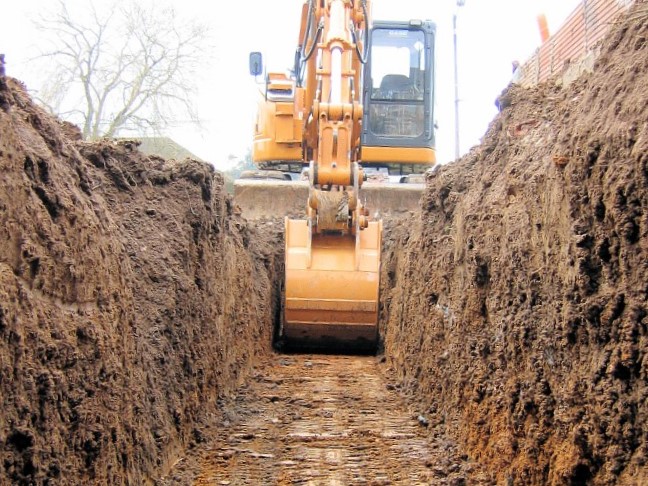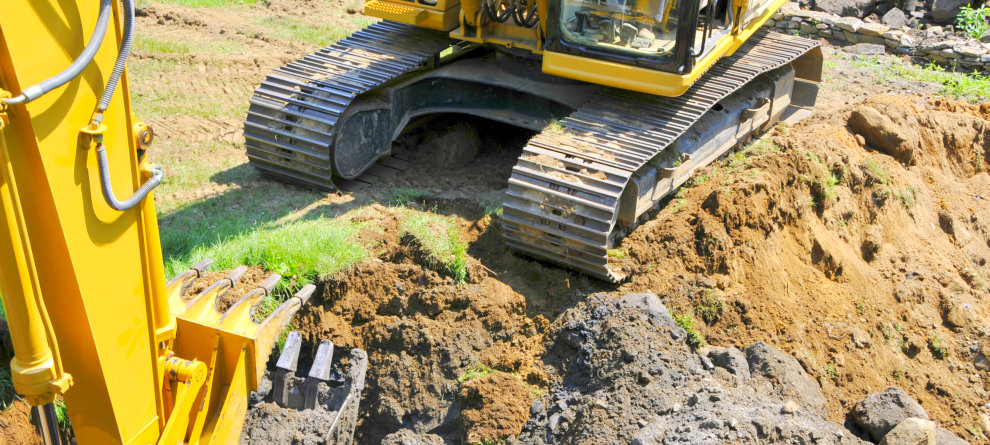Professional Septic Ohio - Relied On Septic System Specialists in Ohio
Professional Septic Ohio - Relied On Septic System Specialists in Ohio
Blog Article
Comprehensive Excavation Techniques: Understanding the Basics for Success
In the world of construction and civil engineering, the significance of reliable excavation strategies can not be overemphasized. The cautious planning, exact execution, and precise interest to detail needed in excavation projects demand a detailed technique that includes various essential facets. From initial soil evaluation to the implementation of safety procedures and regular progression monitoring, mastering these core components is vital for accomplishing success in any excavation undertaking. Nevertheless, real mastery lies not just in comprehending these fundamentals but in effortlessly incorporating them to browse the complexities of excavation tasks with skill.
Comprehending Excavation Project Planning

Effective excavation tasks are improved the structure of meticulous and comprehensive planning. The preliminary stage of any kind of excavation project is the preparation stage, where critical choices are made that can substantially influence the outcome of the project. During this phase, it is necessary to collect all pertinent info about the site, including topographical surveys, dirt make-up, and any prospective risks that might exist. Recognizing the task range, timeline, and budget restraints is vital for developing a comprehensive excavation plan that guarantees the job's success.
One secret element of excavation job preparation is the growth of a comprehensive timeline that details the sequence of turning points, due dates, and activities. By meticulously thinking about all these factors throughout the planning phase, excavation tasks can be executed efficiently and properly, leading to effective end results - septic ohio.
Dirt Evaluation and Site Analysis
Carrying out thorough dirt evaluation and website analysis is a critical action in the prep work stage of any kind of excavation job. Dirt evaluation includes identifying the make-up, structure, and residential properties of the dirt at the excavation site. This info is crucial for comprehending the soil's bearing ability, moisture material, and capacity for disintegration, which are key elements in determining the excavation techniques and equipment needed for the job.
Site analysis exceeds soil analysis and encompasses a more comprehensive evaluation of the overall website problems. This evaluation consists of identifying any possible risks, such as below ground energies, environmental worries, or unsteady terrain, that can impact the excavation procedure. By thoroughly reviewing the website, job supervisors can develop effective excavation approaches that focus on safety and security, efficiency, and environmental management.
Utilizing sophisticated modern technologies like ground-penetrating radar, soil sampling, and drone surveys can enhance the precision and efficiency of dirt analysis and website evaluation. Investing time and resources in these initial steps can inevitably save time and prevent pricey delays or complications during the excavation procedure.
Equipment Choice and Application
Effective excavation projects rely heavily on calculated tools option and application to make sure optimum efficiency and productivity. Selecting the appropriate devices for the work is essential in taking full advantage of performance and lessening downtime. Aspects such as the sort of dirt, deepness of excavation, and job extent play a significant function in establishing the most suitable devices for the job at hand.

Along with picking the proper equipment, correct utilization is crucial to task success. Operators must be educated to deal with the tools safely and effectively - lancaster excavation. Normal maintenance checks and prompt fixings help protect against failures and ensure regular efficiency throughout the project
Safety Steps and Laws Compliance
In the world of excavation projects, focusing on safety and security measures and compliance with regulations is paramount to guaranteeing a safe and secure and legally audio functional environment. Safety and security procedures incorporate a range of techniques, consisting of performing extensive website evaluations, executing appropriate signage and obstacles, and giving appropriate safety and security training for all personnel associated with the excavation process. Adherence to policies, such as OSHA demands in the USA, makes sure that the excavation project satisfies the needed standards to safeguard employees, onlookers, and the surrounding setting.

Monitoring Progress and Adjusting Methods
Exactly how can project managers efficiently track the development of excavation projects and adjust their techniques as necessary to enhance outcomes? Tracking development is crucial for ensuring that excavation jobs remain on track and satisfy due dates. Job supervisors can utilize various devices and methods to track progression, such as day-to-day progression reports, normal site examinations, and advanced tracking technologies like drones and GPS tracking systems. By continuously monitoring the job's improvement, managers can recognize any kind of possible hold-ups or problems at an early stage and take positive procedures to resolve them.

Conclusion
To conclude, mastering the basics of extensive excavation approaches is important for the success of any type of project. By recognizing job planning, assessing soil and website problems, choosing proper tools, abiding with safety and security guidelines, and keeping an eye on progress, job managers can ensure a efficient and smooth excavation procedure. Executing these methods will certainly lead to effective results and reduce potential dangers or setbacks throughout the excavation task.
The first stage of any type of excavation job is the planning phase, where important choices are find this made that can significantly impact the result of the job. Understanding the project timeline, scope, and budget restrictions is essential for producing an extensive excavation strategy that ensures the project's success.
Just how can predict supervisors efficiently next page track the innovation of excavation tasks and adjust their approaches accordingly to optimize outcomes? By very closely keeping track of progression and being willing to adjust approaches, project managers can improve the overall success of excavation tasks.
By comprehending project preparation, examining soil and site problems, selecting suitable devices, conforming with safety and security laws, and checking progression, task supervisors can make certain a reliable and smooth excavation process.
Report this page